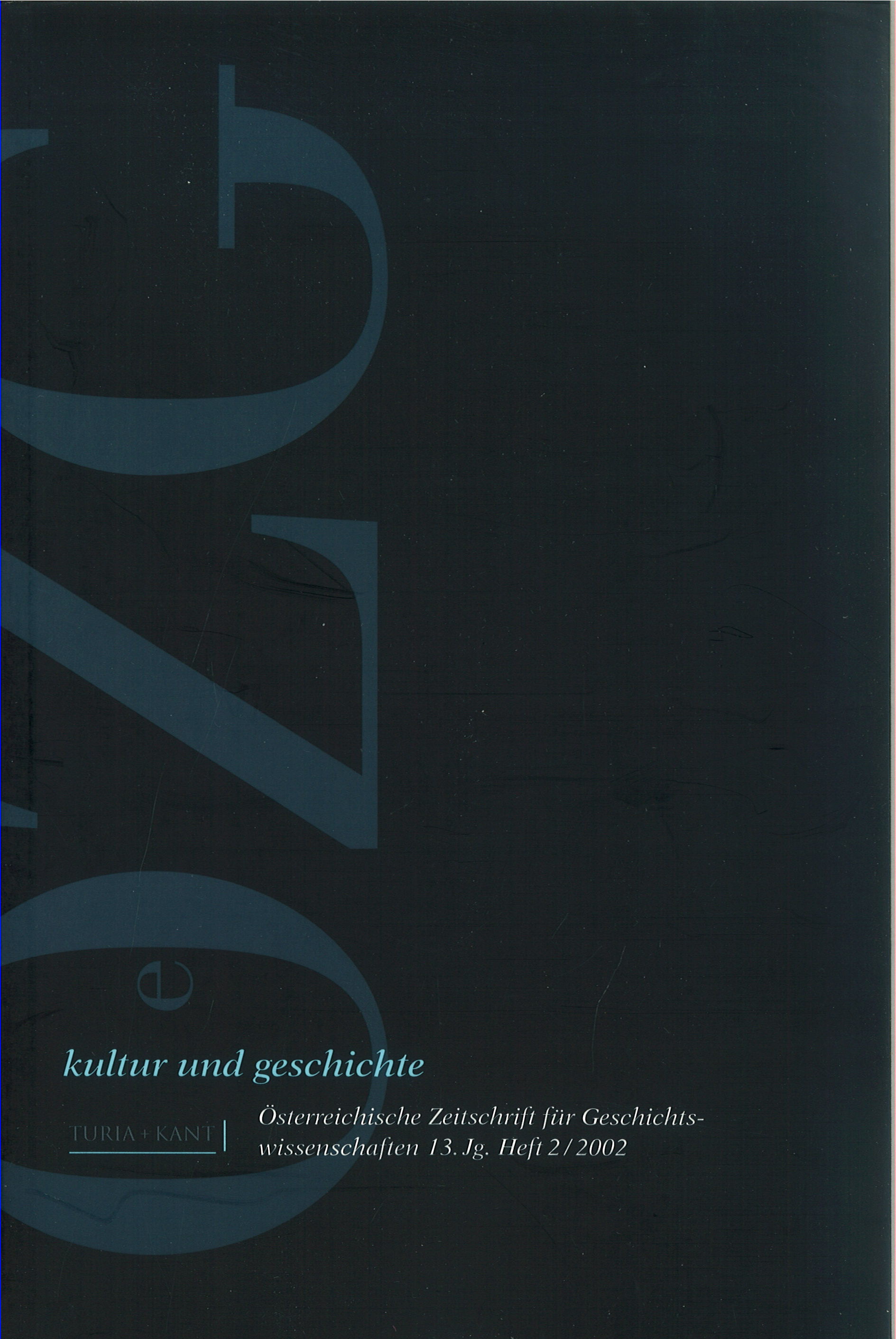Journalistic mediation and its appropriation
Public negotiations on the Wilhelm Voigt case in Berlin 1906/1908 (Hauptmann von Köpenick)
DOI:
https://doi.org/10.25365/oezg-2002-13-2-3Abstract
The author argues that the power of the press is rather a relative power factor than an absolute one. Looking at Berlin's newspapers and their impact on the Wilhelm Voigt case (Captain of Köpenick) he investigates the mutual relationship between newspapers and diverse political actors who made use of this public affair. The 'Köpenickiade' of the habitual criminal transgressed a symbolic border in Wilhelmine Germany and initiated a debate which was then generated by daily newspapers. Focusing on Berlin's press the author analyses the criminal case as a process of negotiating the identity of the criminal and his deed. Since the criminal act consisted of several single actions and had a comic effect, the performance could easily be presented as a series of dramatic actions by popular, modern dailies. The genre of tragicomedy provided Berlin's newspaper with a dramatic scheme to describe and to evaluate this event at the city's outskirts. The dramatisation of the criminal performance, its exaggeration and its dramatic representation, went with a certain view on its protagonist and the crime he committed. Modem mass media as the Berliner Tageblatt, the BZ am Mittag or the Berliner Morgenpost could follow their new journalistic programme and revealed social grievances of the Kaiserreich. While the police believed Voigt to be a public danger, the readership perceived him as the newspapers represented him. Also the criminal himself made successfully use of the media discourse during the trial. Finally even Wilhelm II. responded to a public demand in pardoning Wilhelm Voigt in 1908 and used the case to represent himself as a modern monarch.


